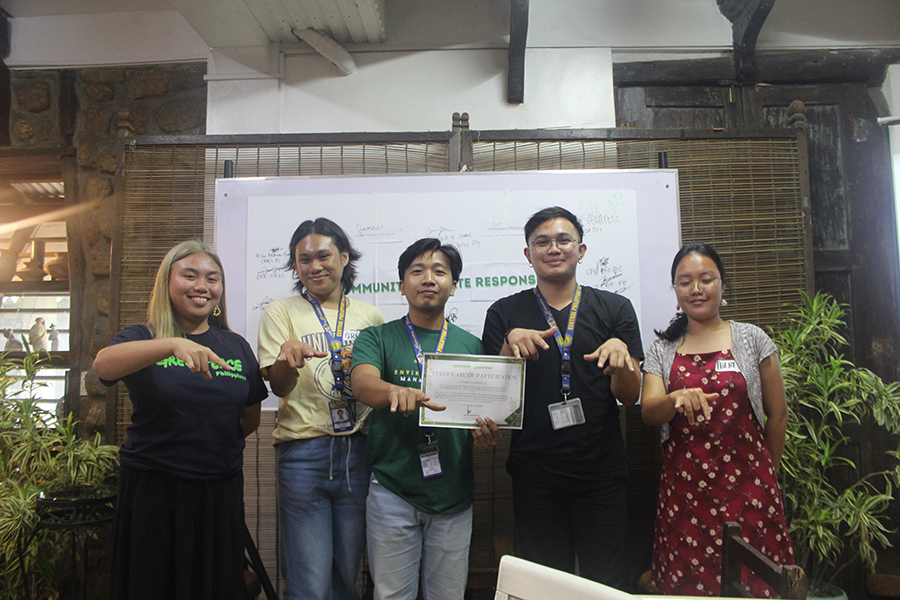By Kevin Andrew M. Garalda
CPU CARES Provincial Council representatives participate in discussions on community-based climate response and resiliency.
On July 15, 2025, student leaders from the College of Agriculture, Resources, and Environmental Sciences (CARES), represented by the CARES Provincial Council, responded to the invitation of Greenpeace Philippines to participate in a public forum entitled “The Climate Crisis and Role of Community Response: A Learning Session on Localized Climate Impacts.”
The event was held at LS Café, Iloilo City, and brought together civil society groups, student organizations, academic institutions, environmental advocates, and local government officials.
Organized by Greenpeace Philippines and its Iloilo volunteers, the forum provided an eye-opening discussion on the worsening climate crisis and its impacts on communities—especially on vulnerable sectors. The event also marked the official launch of the Iloilo Community Climate Response Hub (CCRH), a collaborative initiative envisioned as a local, people-powered platform to strengthen climate preparedness, response, and resiliency.
Among the key highlights was the presentation of the Iloilo Heat Map Report by local groups and Ulirat Collective, which pinpointed high-risk areas within the city—including communities near Central Philippine University, such as San Isidro, Jaro—that face increasing threats from heat and flooding.
Guest speakers included Dr. Ronald Law (DOH), Ms. Donna Magno (Iloilo City DRRM Officer), and Dr. Ma. Laurice Jamero (Manila Observatory), who emphasized the growing urgency of community-led action in mitigating and adapting to climate impacts. “For the first time, global temperature increase has exceeded 1.5 degrees, which should alarm all of us,” Dr. Jamero warned, adding that change must begin at the local level.
The CARES Provincial Council joined fellow CPU student organizations—including the CPU Outreach Student Volunteers Society, Central-Tipig Environmental Society, and CPU Biological Society—in supporting the vision of CCRH. These united student voices echo a strong call: that grassroots efforts, collaboration, and education are key to building resilient communities.
As the climate emergency intensifies, initiatives like the CCRH provide not just knowledge—but direction. The CARES Council remains committed to supporting community-based solutions, advancing environmental justice, and ensuring that Centralian youth are not only aware of the climate crisis, but are also actively part of the response.

